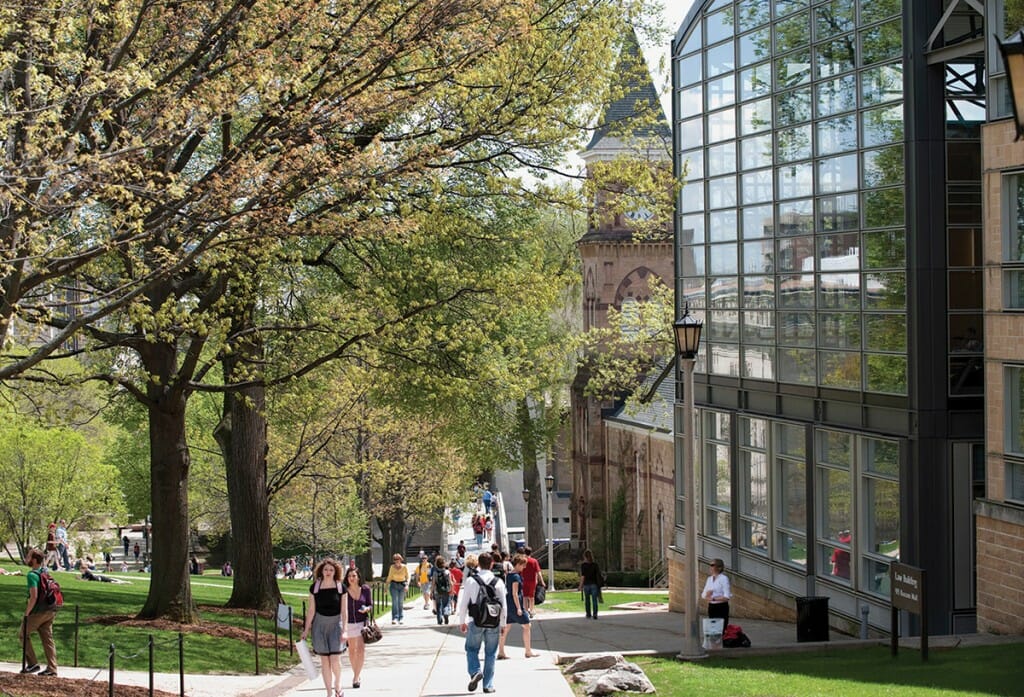Legal Advocates
A restraining order is often a first line of defense for domestic-violence victims seeking protection from an abusive partner. But the process for obtaining one under traumatic conditions can be overwhelming — especially for victims who can’t afford the costs of a lawyer.
The UW Law School (at right, above) has stepped in to address this gap in legal services, with plans to open the VOCA Restraining Order Clinic with federal funds secured by the state justice department from the 1984 Victims of Crime Act. The clinic partners with domestic-abuse agencies in the Madison area and southern Wisconsin that will refer women who need help.
Law students must make a semester-long commitment, during which they will complete two or three cases with supervision and mentoring from licensed attorneys. And the experience will broaden their understanding of the physical, psychological, and economic challenges victims face, says Marsha Mansfield ’77, JD’84, a family law clinical professor and the director of the school’s Economic Justice Institute.
That insight is a critical part of doing domestic-violence work. “Working with victims of sexual assault and domestic violence requires a deep empathy and understanding of trauma,” Mansfield says.
Published in the Spring 2019 issue


Comments
No comments posted yet.